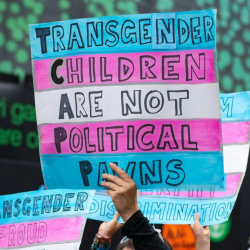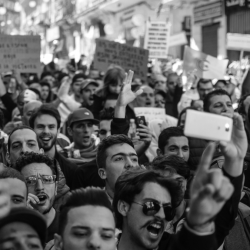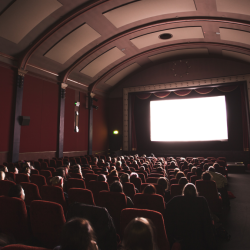As we could grasp from the results of the EU 2024 Elections, the world is shifting towards an increasingly polarised paradigm and this phenomenon affects not only global politics, but also society as a whole.
While both right-wing and left-wing political groups are seeing a resurrection, the media unfroze a word that seemed to belong to the past narrative of politics: bipolar. This word describes very well how people’s opinions are getting stronger and, in the big picture, they are gradually merging into ideologies.
The term ideology was first introduced during the French Revolution as an umbrella term for multiple dimensions of belief systems regarding power, justice, morality and social order. Ironically, early ideologues aimed at ridding minds of prejudice and promoting critical thinking and reason, but things got out of control pretty fast. Nonetheless, ideology still shapes how people perceive the world and has a huge impact on their actions, from how they interact with other individuals to the way they express themselves and their culture in the media and art.
But what is the effect of this re-discovered polarisation in the marketing and communication field?
The rise of boycotting and buycotting: purchases based on brands’ involvement (or abstentionism) in political matters are one of the top signals of the influence of political polarisation — from the popularity of apps listing pro-Israel companies and products to the increase in purchases from brands certifying their efforts in avant-garde labour practices, environmental sustainability or diversity and inclusion.
But these phenomena don’t seem to actually influence business results that much. As Professor Brayden King explains:
Even when [consumers] say they boycott something, or when they’re ideologically aligned to the boycott, they often don’t actually change their behaviour. So for that reason, we don’t see a big impact of boycotts on sales revenue or profitability.
King is one of the most renowned experts on the topic and conducts his research at Kellogg School of Management. His work suggests that even though marketing campaigns are at an ever-growing risk of being attacked on the internet, there is a pretty evident discrepancy between what people express on social media and their actual purchasing behaviour.
This might have to do with rules that are intrinsic to social networks. On social media, polarisation never really got out of trend. In fact, it has always been one of its founding elements.
The psychological phenomenon of confirmation bias leads users to seek out content that validates their preconceptions and aligns with their existing beliefs, feeding their ideological point of view, even when this has limited consequences on their offline lives.
Moreover, platforms are gaining traction as search engines, becoming one of their main source of information about current social and political matters. This way of accessing the news fuels a single-minded stream of content that reinforces their cultural bubble. Even though consumers and brands don’t always have a political approach to their use of the media (and, when they do, the impact on business is more limited than we might think), the marketing and communication landscape is permeated by the same phenomena that shape the political scenario, with the re-discovery of a bipolar narrative being the most evident one.
Featured image: Chuko Cribb / Unsplash
































